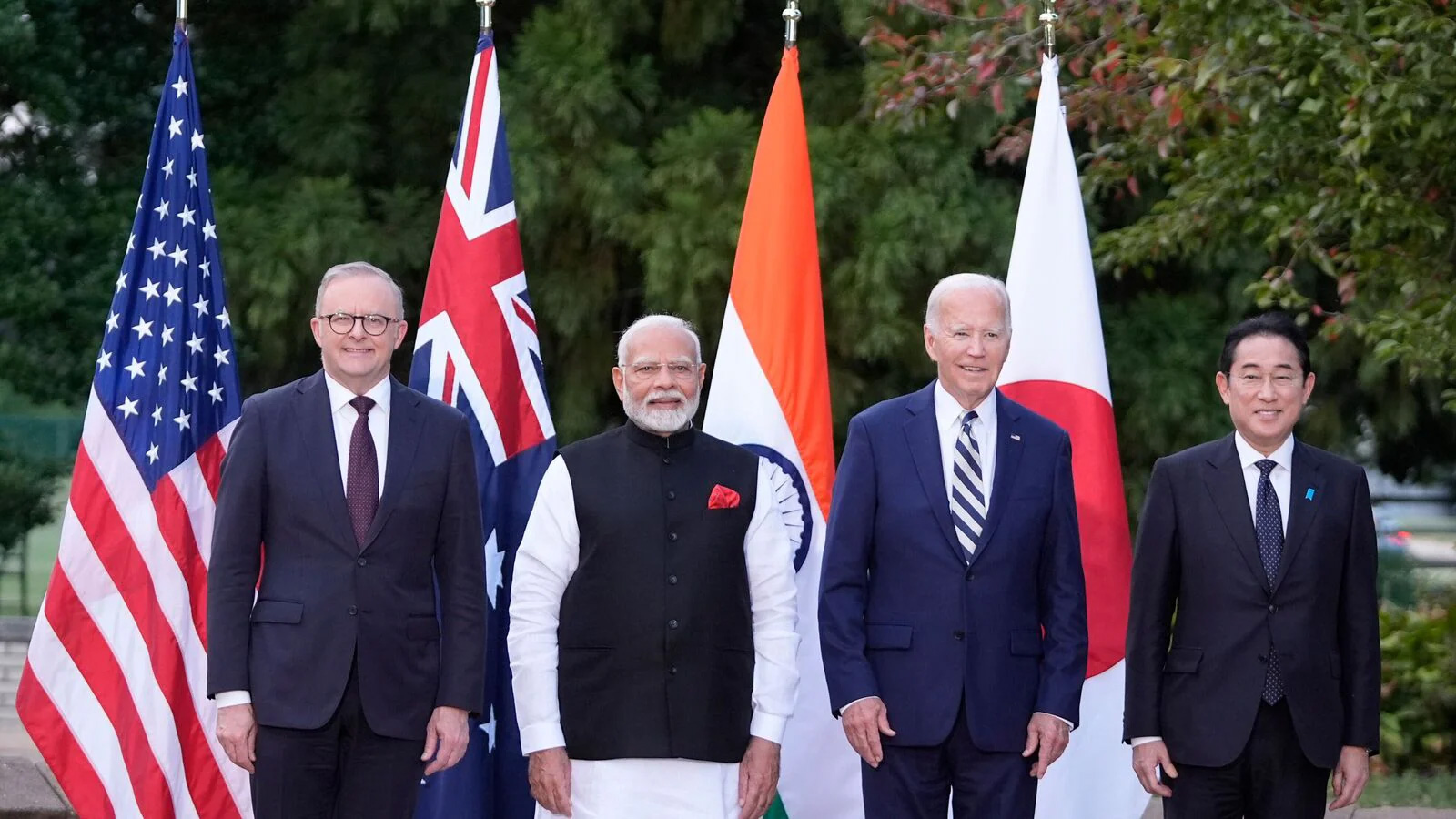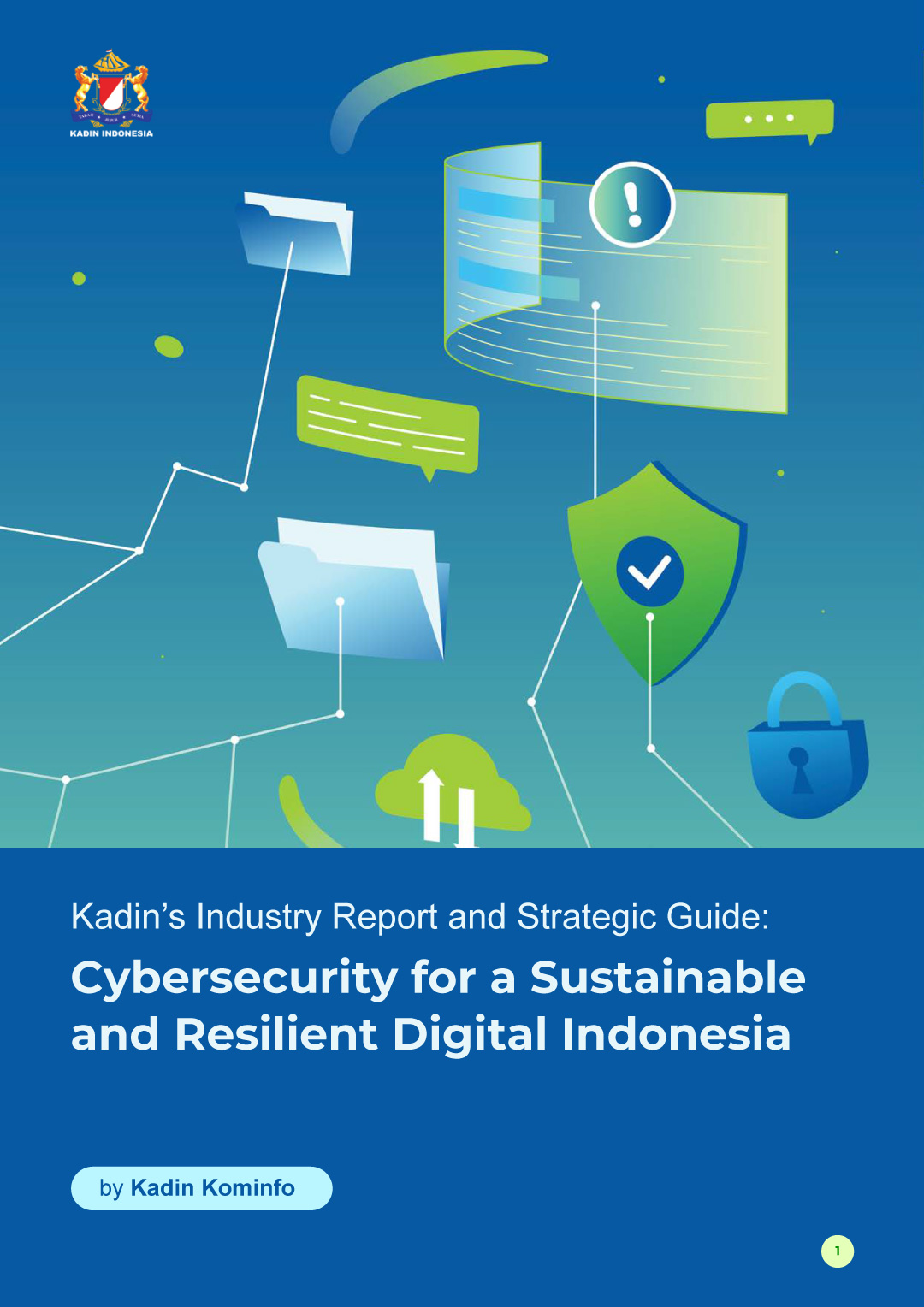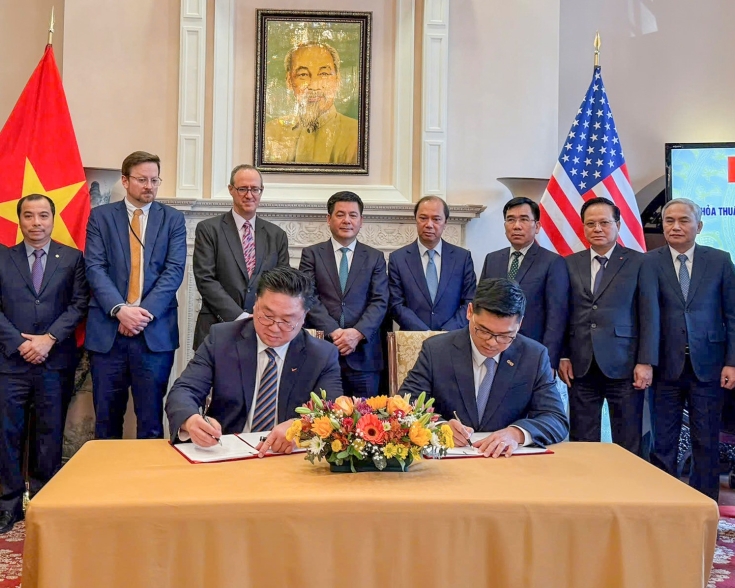Opportunities and Challenges of the Wilmington Declaration

The Wilmington Declaration, issued during the Quad Leaders Summit in September 2024, reinforces the Quad’s commitment to strengthening security, stability, and prosperity in the Indo-Pacific. The declaration highlights a range of new opportunities across maritime security, defense technology, supply chain resilience, and disaster relief. However, these opportunities come with challenges, particularly due to rising geopolitical tensions with China.
Maritime Security
The Quad’s focus on Indo-Pacific security offers significant opportunities for firms in satellite technology, surveillance, and data analytics. The Indo-Pacific Partnership for Maritime Domain Awareness (IPMDA), introduced in 2022, has rapidly expanded, providing a growing market for monitoring solutions within exclusive economic zones (EEZs). This initiative offers tools for partners across Southeast Asia, the Indian Ocean, and the Pacific to track illegal activities like illegal fishing, dark vessel operations (where ships turn off their tracking systems), and territorial infringements. The increasing use of dark vessels and illegal activities highlights the demand for sophisticated maritime surveillance technology, which U.S. firms are well-positioned to supply.
The new Maritime Initiative for Training (MAITRI) presents further opportunities. Beginning in 2025, this initiative will include workshops focused on building the maritime capabilities of Indo-Pacific partners. Companies can showcase their technologies and provide interoperability solutions and law enforcement tools. These workshops, particularly focused on ASEAN and Indian Ocean nations, represent a key platform for U.S. firms to engage directly in capacity-building efforts.
The upcoming Quad-at-Sea Observer Mission in 2025, involving the U.S. Coast Guard, Japan Coast Guard, Australian Border Force, and Indian Coast Guard, aims to improve interoperability between maritime forces. This mission provides a crucial opening for firms specializing in vessel tracking systems, radar technologies, and maritime safety equipment to contribute to advancing maritime security among Quad nations and regional partners.
Defense Technology
Collaboration on regional security within the Quad has created multiple opportunities. The Quad’s strong opposition to unilateral actions that destabilize the Indo-Pacific region opens avenues for sales and joint ventures in military equipment, defense technology, and maritime platforms. As Quad members deepen their cooperation, there is growing interest in joint defense procurement across the region. Firms can leverage this to supply critical defense technologies that align with Quad priorities.
The Quad also highlights increasing demand for cyber defense systems and threat information-sharing platforms to safeguard critical infrastructure from state-sponsored threats. Firms are critical in offering cybersecurity solutions, which align with the Quad's objective of protecting vital national and regional infrastructure from cyber threats.
Supply Chain Resilience
The Quad’s push to diversify supply chains presents strategic opportunities in semiconductors, avionics, and other critical technologies. The Quad has launched various initiatives aimed at reducing dependency on single-source supply chains, particularly with the Semiconductor Supply Chains Contingency Network. This presents areas of collaboration with ASEAN and other Indo-Pacific partners to build resilient supply chains for key defense and tech sectors.
The Quad’s focus on emerging technologies also presents opportunities for firms to co-develop next-generation technologies such as AI, autonomous systems, and communication technologies with regional partners. Quad-backed initiatives, such as the Quad BioExplore Initiative and the Asia Open RAN Academy (AORA), are pushing research and development in advanced technologies, creating opportunities for future partnerships.
Disaster Relief
The Quad’s emphasis on humanitarian assistance and disaster relief, particularly through the Indo-Pacific Logistics Network, opens new avenues for U.S. firms in aerospace logistics, emergency response systems, and airlift capabilities. Following the successful humanitarian efforts in response to the landslide in Papua New Guinea and Typhoon Yagi in Vietnam, U.S. companies can offer logistics solutions for disaster response operations across the region. The Quad’s commitment to pre-positioning essential supplies in disaster-prone areas creates ongoing demand for rapid-response logistics systems.
Geopolitical Considerations
However, as tensions rise with China, particularly in the South China Sea, U.S. firms may face heightened regulatory scrutiny and potential export restrictions in defense sectors. Compliance with local defense procurement rules, cybersecurity regulations, and technology transfer policies will become crucial for maintaining market access across ASEAN. The Wilmington Declaration reaffirms the Quad’s dedication to a rules-based maritime order, making it essential for companies to consider geopolitical tensions that may arise.
As the U.S. government clamps down on its export control regime, particularly in response to national security concerns surrounding China, there could be more stringent regulations on the sale of sensitive defense technology and dual-use items to countries in the Indo-Pacific. Already, there have been tightening controls on technologies like semiconductors and artificial intelligence (AI), which has impacted firms in the region. Additionally, compliance complexities could arise from potentially violating international arms control agreements or sanctions when dealing with Southeast Asian countries that have ties with China.
Countries within ASEAN often seek to balance their security ties with the Quad and their economic relationships with China. U.S. companies must be aware of how their involvement in defense projects, particularly in maritime and cybersecurity sectors, could impact regional diplomatic dynamics. Some ASEAN countries may be reluctant to engage in projects perceived as antagonistic towards China, particularly in contentious areas like the South China Sea.
Firms will need to be sensitive to this geopolitical balancing act and tailor their engagements accordingly. However, despite these challenges, the Wilmington Declaration’s focus on Indo-Pacific security creates significant openings for U.S. firms. As ASEAN nations seek to strengthen their maritime security and cyber defense capabilities, they may prefer to partner with U.S. firms offering high-tech solutions that align with international norms and Quad priorities. The Quad’s collective commitment to uphold freedom of navigation and sovereignty in maritime zones provides a strategic buffer, making it easier for firms to operate in a region increasingly concerned about Chinese assertiveness.
The Wilmington Declaration signals a continued focus on regional security and collaboration among Quad nations, providing U.S. companies with valuable entry points in the Indo-Pacific. While the geopolitical landscape, particularly with China, presents challenges, the demand for advanced defense technologies, cybersecurity solutions, and resilient supply chains creates promising avenues for growth. By aligning their strategies with the Quad’s objectives and carefully navigating the region’s regulatory complexities, U.S. firms can capitalize on the expanding market opportunities across ASEAN and the broader Indo-Pacific region.








